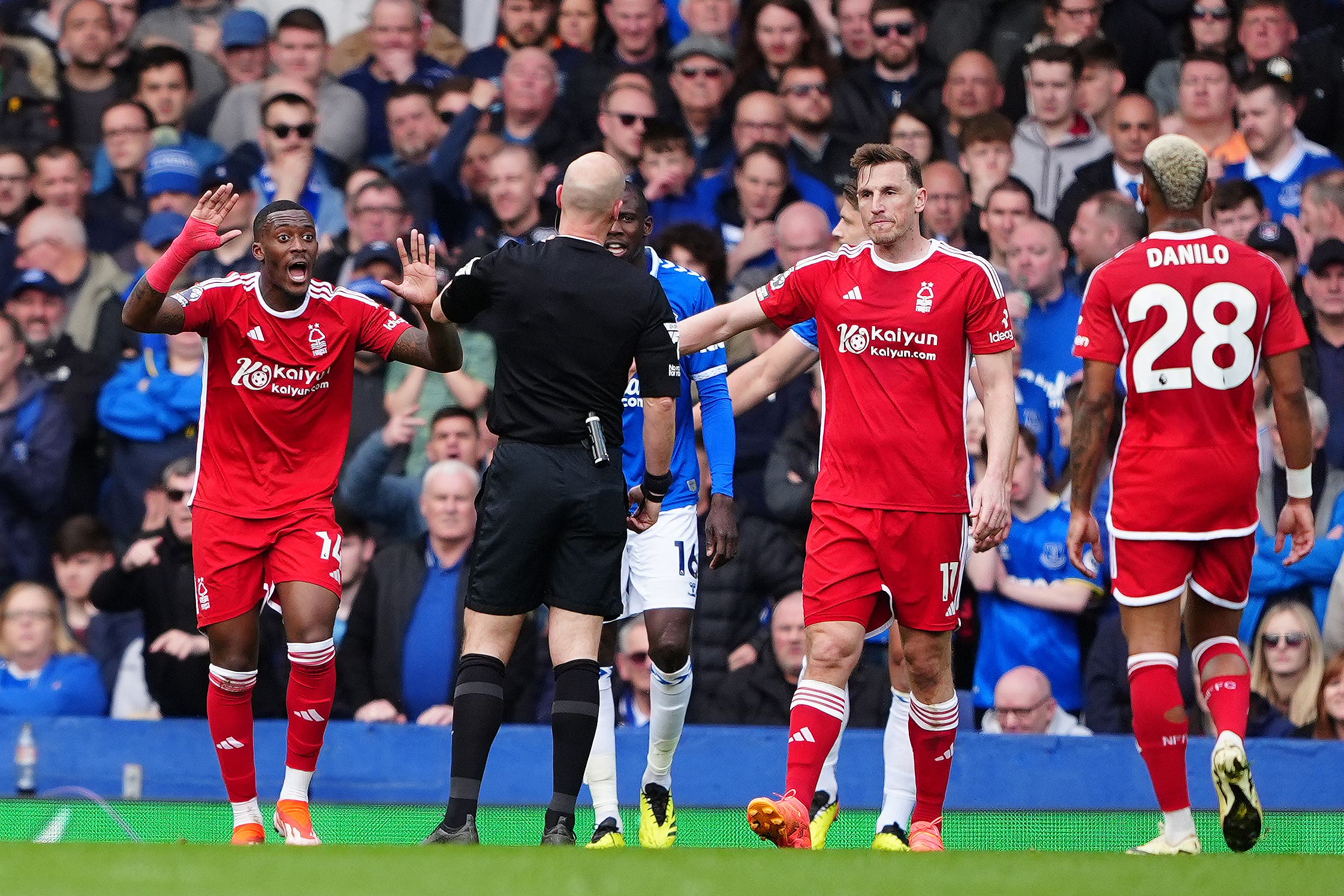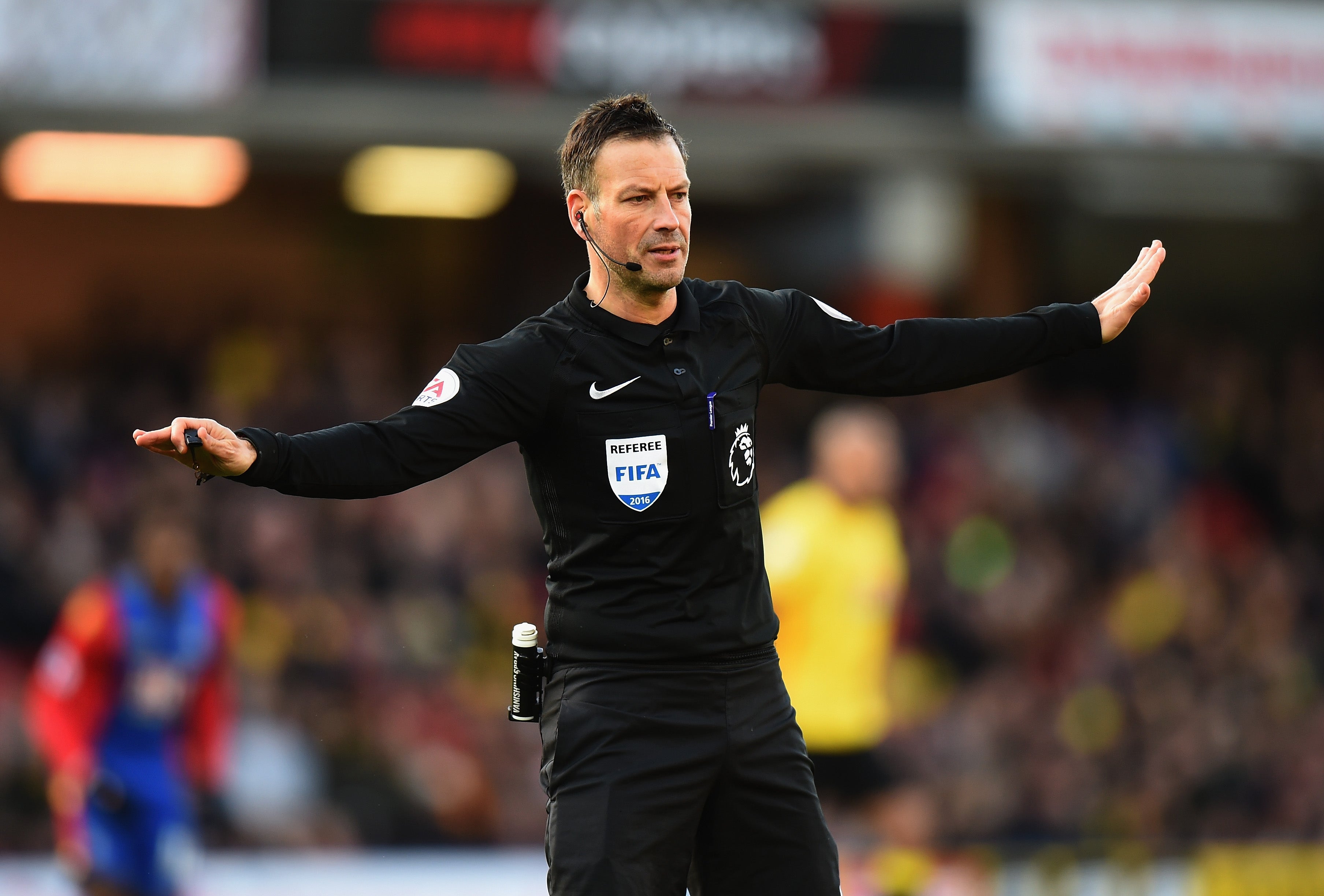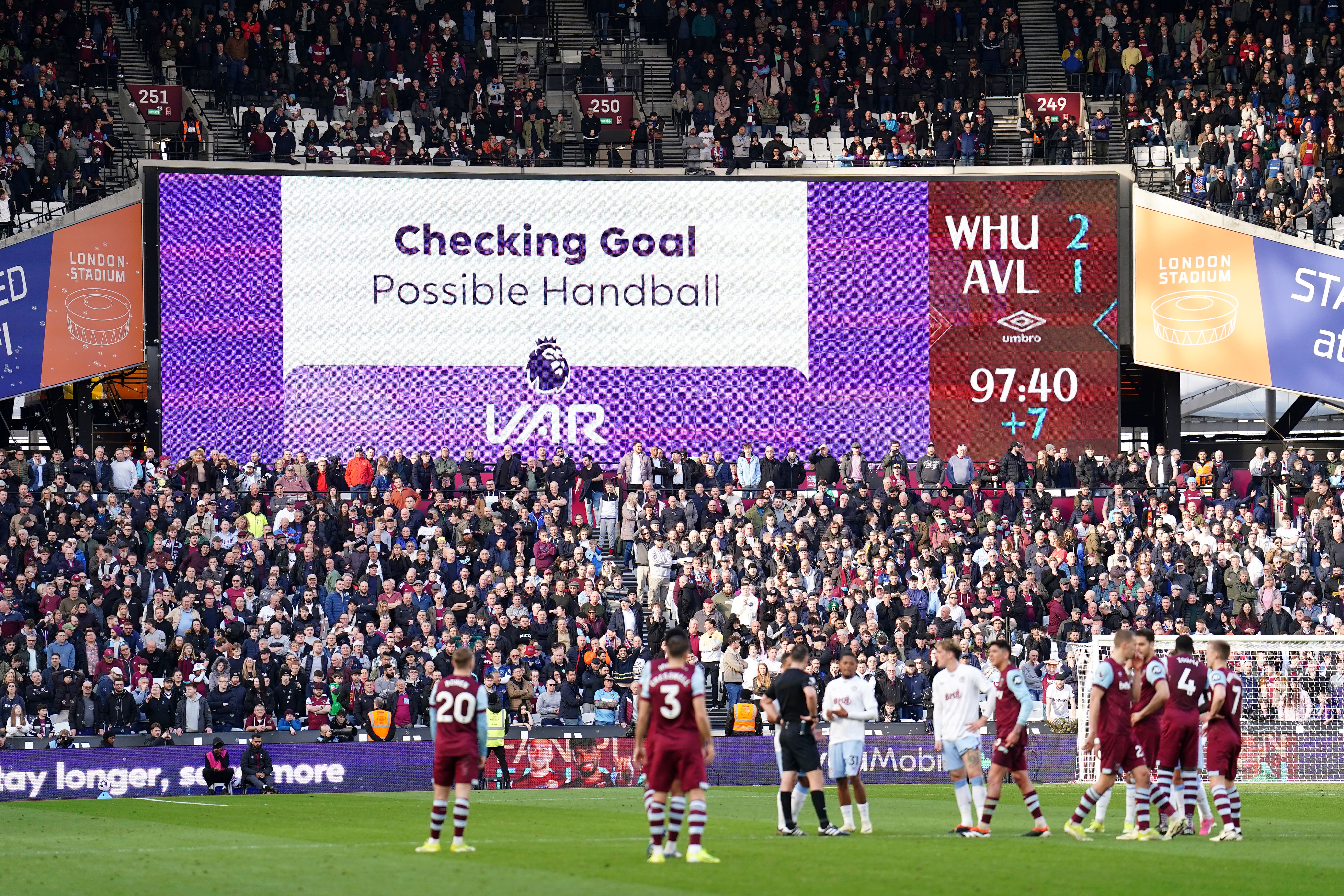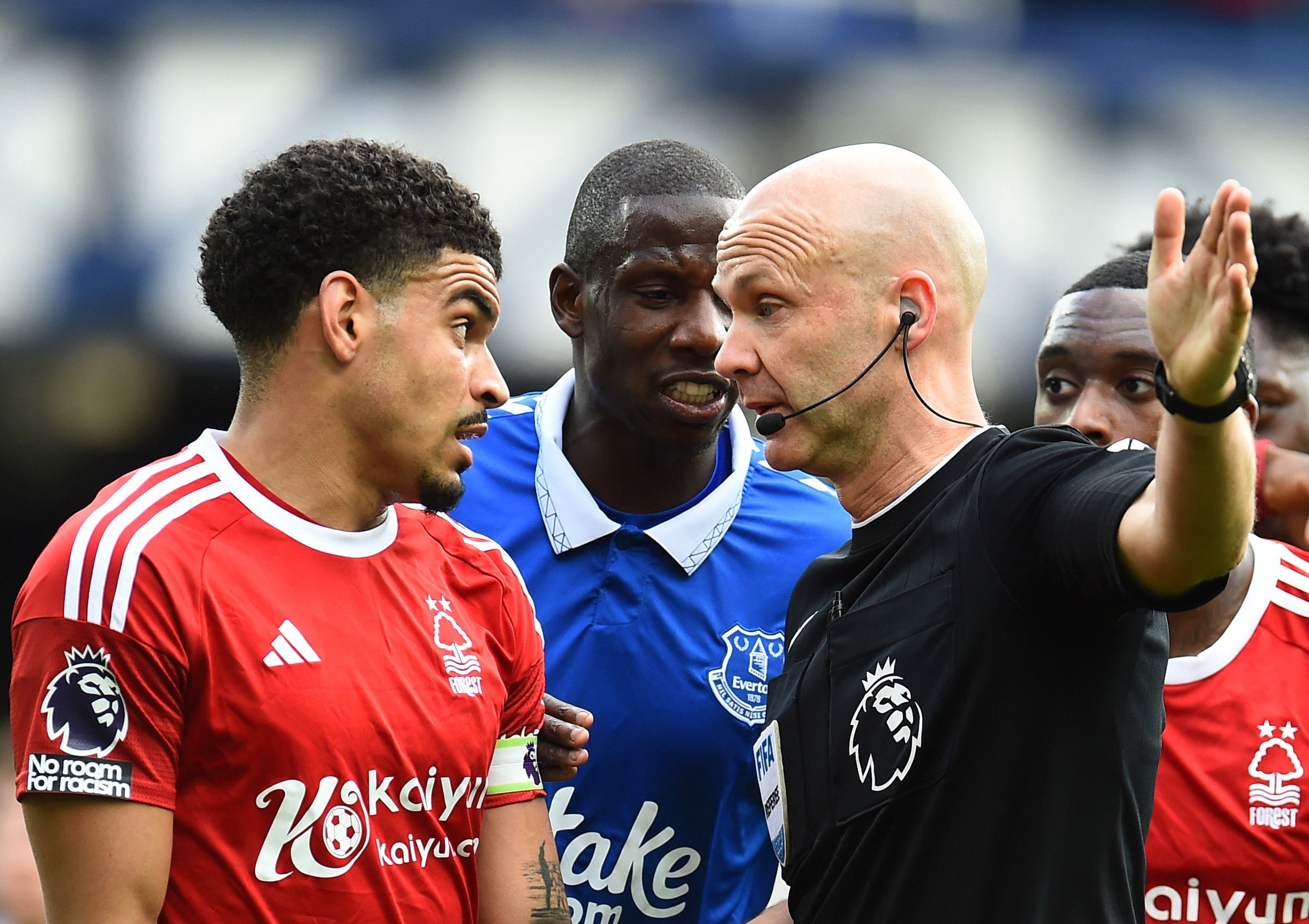Nottingham Forest’s selfish statement shows why the entire Premier League is in crisis
Forest’s hypocritical complaints about VAR stirred up the conspiracy theories that dominate football discourse on social media, and which are eroding trust in the English game
When Nottingham Forest’s statement was put to Howard Webb at Wembley on Sunday, the PGMOL chief was visibly furious. That was one of many emotions swirling around that FA Cup semi-final between Manchester United and Coventry City, and the entire day. It took a lot to distract from the football but that was exactly what the Forest statement did. In the moment it dropped, senior figures from both clubs and the football’s authorities were feverishly showing each other.
There was a period when everyone was looking at their phones rather than the game. That was at least until Coventry seized the initiative late on, with a stirring comeback that led to that last-minute winner… or, what could have been a last-minute winner. It was quite a time for what might have been the greatest modern FA Cup story to be ruined by what seemed the extreme pedantry of a micro-offside.
This, in the words of so many, is not what the system is supposed to be for. That’s a line that has come up a lot in football lately, which is pretty much any time that agreed-upon rules are applied. It’s why the Coventry and Forest situations are only superficially linked – but they do play into a much bigger and deeper debate the game must start to have.
Coventry’s situation warrants sympathy. They were made to believe they had achieved something joyously historic, that would be celebrated for decades, only for that to be snatched from them for the sake of millimetres. At the same time, that offside decision is a binary mathematical case of off or on. There are discussions that can be had about measurement theory in situations like this, but that time is not in the moment when the rules already apply.

None of this is the case with the Forest decisions against Everton. Even if you think there was at least one penalty in the three disputed decisions, as many within the game do, they all come down to subjective interpretation. Yes, even with VAR.
That subjective interpretation is still a core part of the game and the way it is officiated, and has to be, especially when people so often go on about “common sense”. There is no perfect system where every decision is right, because not everyone agrees on every decision.
Common sense was nevertheless completely abandoned for Forest’s statement. It was, to quote multiple football figures up to Jamie Carragher, “embarrassing”.
The statement wasn’t mere criticism of perceived incompetency or falling standards. It was directly questioning integrity, which is why it is right – and inevitable – that the Football Association investigates.
More than anything, though, it is the spoiled and self-entitled response of a club whose owner has a history of this. It is only three years since Olympiakos, also owned by Evangelos Marinakis, criticised the “darkest days of Greek refereeing ever”. A specific target of that criticism was the president of the “central refereeing committee”, who Olympiakos said they were withdrawing “confidence” in. The individual? Mark Clattenburg, who by 2024 Marinakis had enough confidence in to employ as Forest refereeing consultant.
Perhaps as concerning in the statement were the words that Forest “will now consider its options”. A profound issue with this is the foundational ethos that the very culture and business of sport just can’t function in any way if decisions aren’t simply left on the pitch. That has to be sacrosanct, or the entire culture of sport breaks down.

It is one of many reasons this statement was a landmark for the English game, and how all discourse around it has become so corrosive. It is certainly of a theme with Premier League meetings that are “dominated by long speeches by club lawyers”. There has still never been anything so inflammatory.
It’s hard not to link it to the wider discussion around the sport, especially since this statement was put out on social media. There, everything is brought to extremes, and nothing is ever just a simple error or something people might disagree with. It’s instead this brain-melting noise where there is constant shouting about perceived mortal offences all the time.
This feeling is still one that Forest’s statement did tap into, as can be seen from many of the responses. Supporters of all clubs were all too willing to agree with them.
This would usually be online noise that should be ignored but that’s the problem. It’s so loud it can’t be ignored, especially when fans are bringing huge banners to games complaining of “corruption”.
All of this has become a major issue for the Premier League as it tries to settle into its fourth decade, and that at a point of global power and wealth that is unprecedented in the game’s history. The competition isn't actually sitting comfortably into that position.
It is instead facing a profound legitimacy crisis. There is also considerable evidence this has directly built up from the same laissez-faire attitude that made the Premier League so strong in the first place. It is almost a parable for neoliberalism in the wider world.
On a more basic level, the anger about refereeing decisions is consistent with the agitation about multiple PSR cases, the investigation into Chelsea and the huge existential event that is Manchester City’s 115 charges for alleged breaches of FFP rules.
These are all very different issues, with very different elements, but the specific problem for the Premier League is that they all foster the same emotions raging around their games. Fans no longer trust what they see.
The Premier League’s general response has probably made things worse. There is a lack of transparency about decision-making, and many executives complain of an “arrogance”. It’s specifically why you shouldn’t have situations where referees are doing extra work in states like Abu Dhabi, when one of that emirate’s senior royals is the named owner of your champions. That isn’t to say there is anything untoward, but will lead to direct questions and perceptions of a conflict of interest.

These are the comments that surround the Premier League now. There’s another historic irony to that. Again, so much for VAR doing away with debates about decisions.
It’s never been worse. The entire discourse reminds of Spain in the 1990s, when the front pages of the sports papers would so often be about offside lines and there was a constant paranoia about which of the big two were getting favoured this weekend. One executive at Wembley went further, in reference to points deductions and such public comments, that “it’s all a bit Serie A”. No one in the Premier League should need reminding that it was a legitimacy crisis that brought down the previously unassailable power of the Italian league in the 2000s. That was in the different form of Calciopoli, where there were relegations and points deductions for influence-peddling, but the more profound issue was the erosion of trust.
If it sounds arrogantly jingoistic to point at other leagues in unfavourable comparisons like this, this is precisely the view other leagues themselves have. One reason that foreign competitions directly try to employ English referees is because of the long-term perception of fairness. That goes right back to the early 1960s, and beyond, when an English referee was insisted upon for a European Cup tie between Barcelona and Real Madrid.
That perception is now being eroded from within. Many around football would say English football only has itself to blame for allowing standards to drop, and that might well be true. There is something bigger here, though.
Social media has accumulated and amplified old supporter criticisms of referees so they become something else – just like with everything else – to the point it starts to bring more and more scrutiny. VAR then directly shows footage that officials have access to, seemingly making decisions inexplicable.
It is nevertheless quite easy to explain. VAR still involves a series of subjective decisions, that have to be made quickly, even amid fair complaints about the length of time. This is one cost of the system, but also an almost unresolvable tension between wanting referees to be better and not wanting disruption. Basically, football can’t have accuracy, consistency, common sense and speed all at once because they are all contradictory.

The noise about that then increases the pressure on referees to the point that fulfilling all of these demands becomes less likely, and isn’t exactly conducive to encouraging the next generation of officials. Why would anyone bother?
For the Premier League’s part, some officials within the competition have tried to make the argument that VAR should really become “VAR lite”. That would be where elements like marginal offsides are left, and only truly huge errors are corrected. There have been attempts to lobby Ifab, but the body in charge of the world game’s decision-making has had no interest.
It all feeds into this disconnect about multiple issues in modern football, from ticket prices and financial disparity to regulation and the very idea of community clubs being bought by billionaires and sovereign wealth funds.
That’s also why it makes it all the more concerning that Forest’s statement was seen as some great blow for the fans against the authorities. It is akin to Donald Trump being presented as separate to the “elite”.
You couldn’t have a greater indication of many of the problems of the modern game than a controversial media mogul owning multiple clubs, while spending so much money on transfer fees and wages that they breach the rules, and then continuing a history of complaining when rules are applied.
This certainly isn’t the “consistency” that everyone seems to want.
Join our commenting forum
Join thought-provoking conversations, follow other Independent readers and see their replies
Comments
Bookmark popover
Removed from bookmarks